Zumbido Health

Tackling social isolation by creating support groups that are accessible, immediate and anonymous using the power of digital technologies
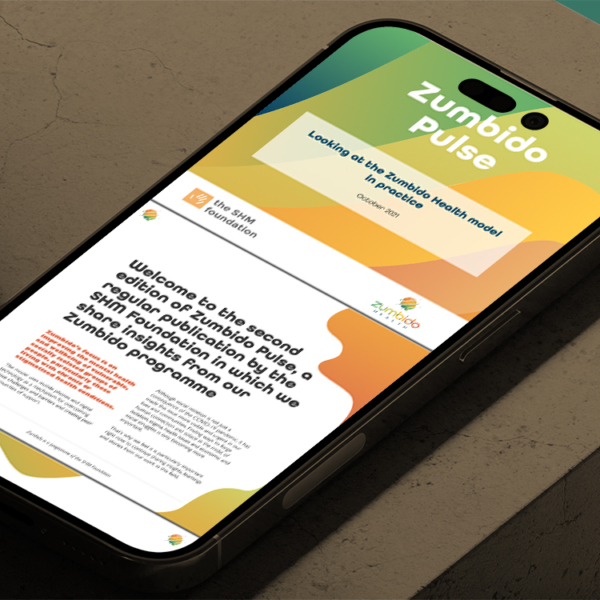

Zumbido Health
Tackling social isolation by creating support groups that are accessible, immediate and anonymous using the power of digital technologies

The Issue
Addressing social and emotional wellbeing is crucial to improve the lives of people living with chronic health conditions. Yet systems of care frequently focus only on the physical impacts of conditions.
Long-term health conditions are often highly stigmatised. This can mean that those living with them experience discrimination, hostility and shame in their communities and social lives, in addition to the condition itself. This has a major impact on a person’s quality of life.
This is not a side issue. Social isolation and stigma have severely detrimental impacts on health through:
- lower adherence to medication and treatment
- anxiety, depression and other mental health issues
- suicidal thoughts
- physical effects of loneliness, such as inflammation, muscle tension and digestive issues
Effective and sustainable sources of social support are needed to ensure that individuals are cared for as whole human beings, not just as patients.
The Approach
The Zumbido Health Model uses mobile phones to create social support groups for vulnerable, socially isolated groups. It is a time-bounded social support program wherein participants are placed in support groups of 10-15 peers who share similar experiences. These support groups are enabled by our digital platform, where participants discuss - peer to peer, at any time via text message - a range of issues pertinent to their condition or needs. The model has three crucial ingredients:
- Accessibility: a social support group is of no use to anybody if it can’t be accessed by its participants. Digital technology can be used to overcome barriers of time, stigma and geography.
- Intimacy: it’s easier to open up about personal experiences in a small circle of peers than in front of a big group. Our digital support groups are always small and closed, enabling a higher quality of interaction and a personal atmosphere.
- Anonymity: issues affecting people living with chronic conditions are often highly sensitive. Anonymity allows participants greater freedom to open up about their lives safely.
It is the combination of accessibility, intimacy and anonymity that makes the Zumbido Health Model uniquely effective in addressing social isolation and stigma in vulnerable groups.
Our methodology is founded on three key principles:
- We put participant’s voices at the heart of the design and adaptation process.
- We believe that digital technology enables the provision of social support, but it is not a solution in and of itself.
- Our model is best facilitated by peers, people living with the same condition or in the same circumstances as the group’s participants.
We have worked with a range of populations in Guatemala, Mexico, Zambia, South Africa, Zimbabwe and the UK.
The Outcome
The Zumbido Health Model has proven impact in:
- Increasing self-reported medical adherence
- Increasing perceived levels of social support
- Decreasing internalized social stigma
- Increasing knowledge and access to services
Our participants have sent over 1 million text messages.
We are also developing a methodology for analysing our text message data called 160 Characters. This provides a unique perspective for understanding the mental health and wellbeing needs of vulnerable populations.
In implementing the Zumbido Health Model across contexts and populations, we have developed an expertise in participatory co-design for digital health interventions, particularly in the area of adolescent health.
More About this Project
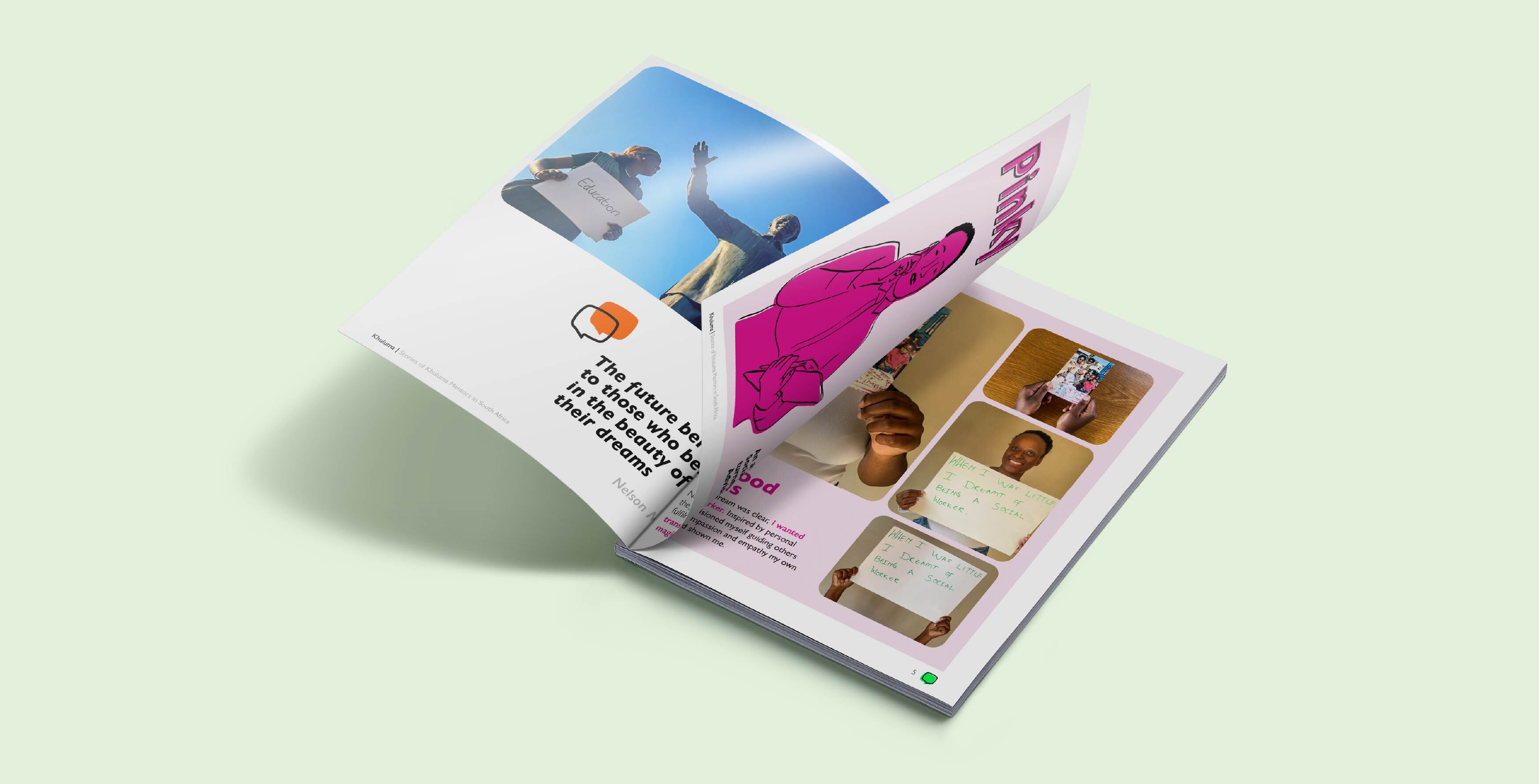
Young, Brave & Dreaming: Stories of Khuluma Mentors in South Africa
This visual photostory series explores the journey of hope, friendship, and dreams of three Khuluma mentors who joined our digital support groups in South Africa. Narrated in their own voices and accompanied by portraits captured remotely, these stories trace their paths from seeking support to leading others.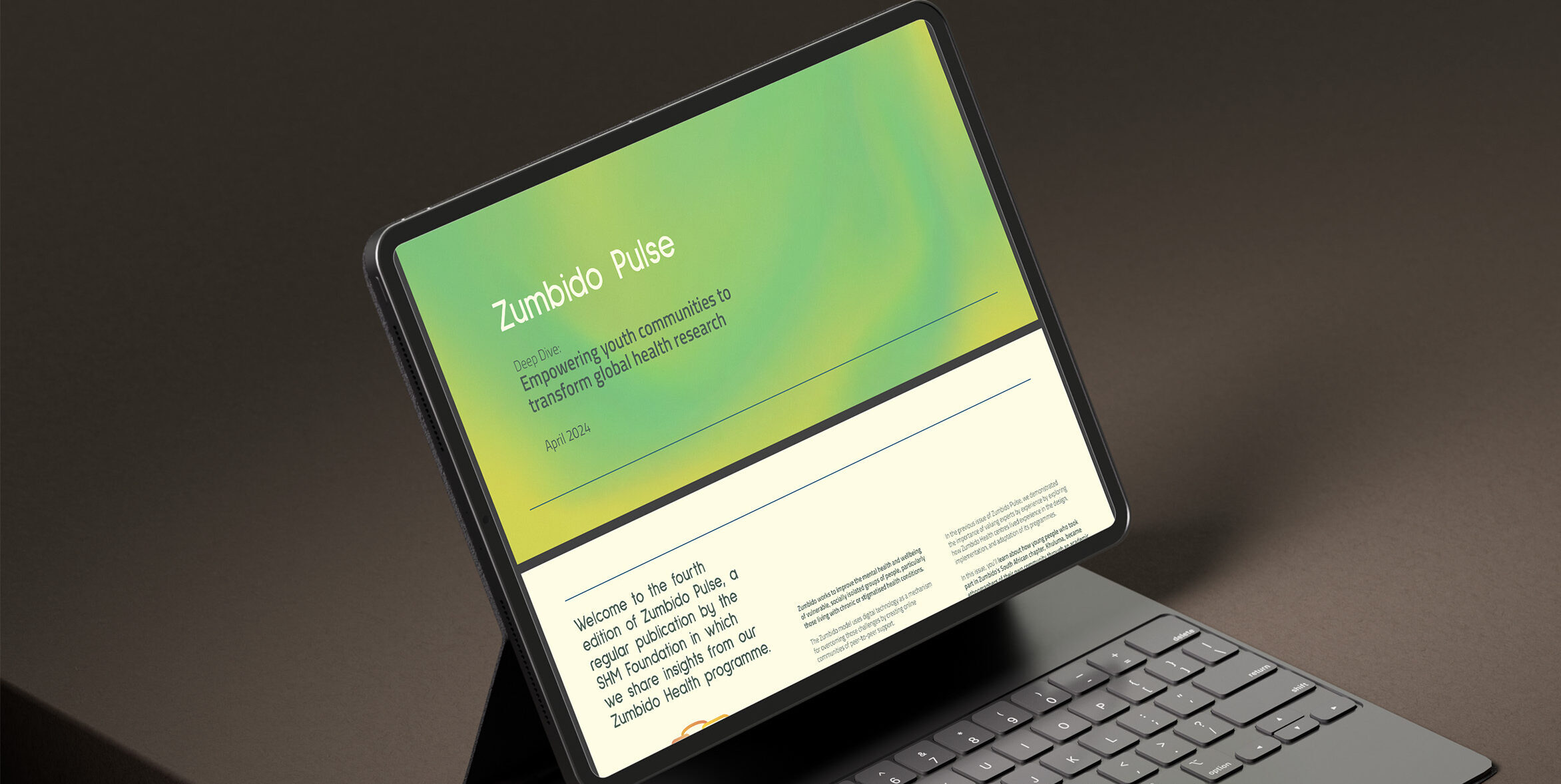
Zumbido Pulse: Empowering Youth Communities to Transform Global Health Research
In this issue, we deep dive into how young people became ethnographers of their own community through an academic partnership, bringing valuable insights into the factors affecting the mental health of adolescents living with HIV. You can also listen to excerpts from interviews within the PDF.
In the global spotlight: Khuluma mentor delivers insightful presentation at International Workshop on HIV & Adolescence
In October 2023, Given Monama presented research conducted by Khuluma Mentors on the challenges faced by adolescents living with HIV in low-income settings in South Africa, and proposed participant-centred solutions to the HIV treatment gap.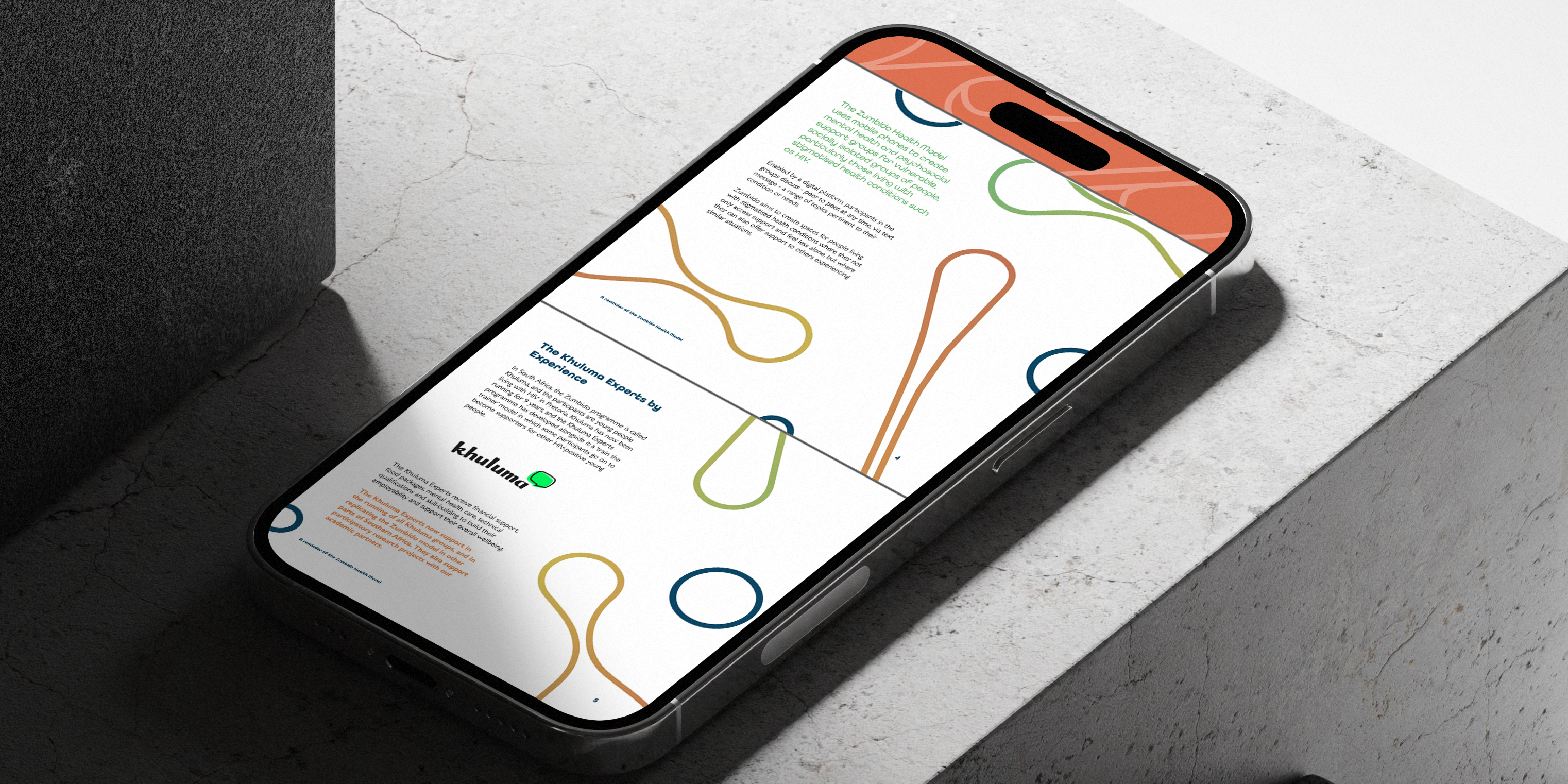
Zumbido Pulse: How to value experts by experience
The latest edition shares insights from our approach to involving experts by experience in the design and implementation of mental health support systems for young people living with HIV
Characterising mobile phone use among AT users in Indonesia and Sierra Leone
This report shares research conducted as part of the international AT2030 progamme, exploring phone use among people with disabilities, carers and potential assistive technology users in informal settlements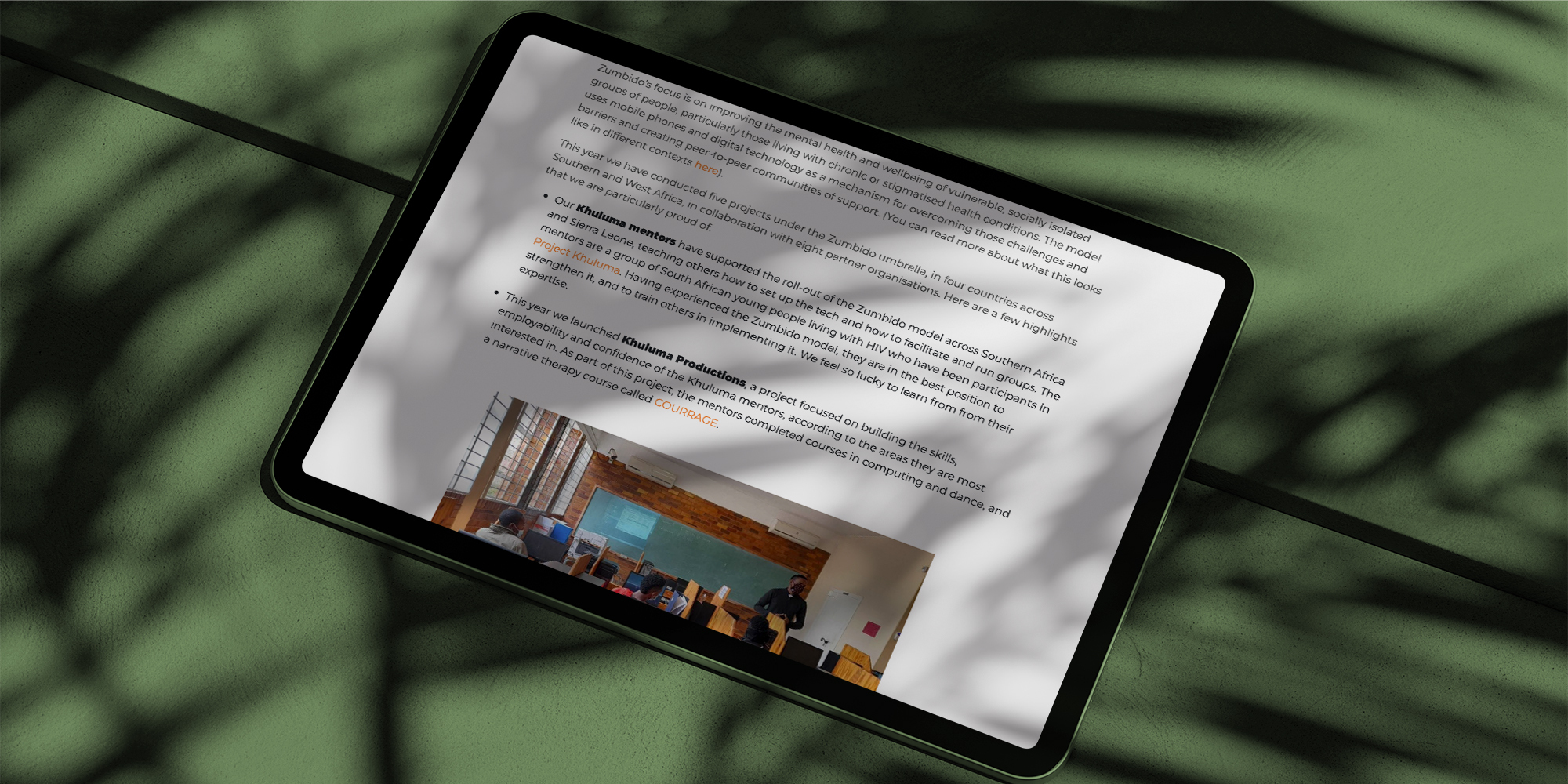
Zumbido Health Wrapped
As the Covid-19 pandemic has continued to make virtual connection ever-more important, it's been a big year for our Zumbido Health programme. Here are some of our proudest moments.
Zumbido Pulse Edition II: Learnings from Insaka, Khuluma, Zvandiri Support Groups
Over the last 12 months we have implemented the Zumbido health model in three countries in Southern Africa. We capture the learnings from our work in this blog!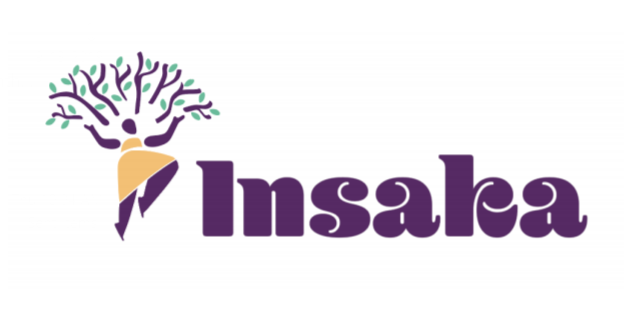
Insaka evaluation paper in BMJ journal- Mobile phone support groups for adolescent pregnant women living with HIV
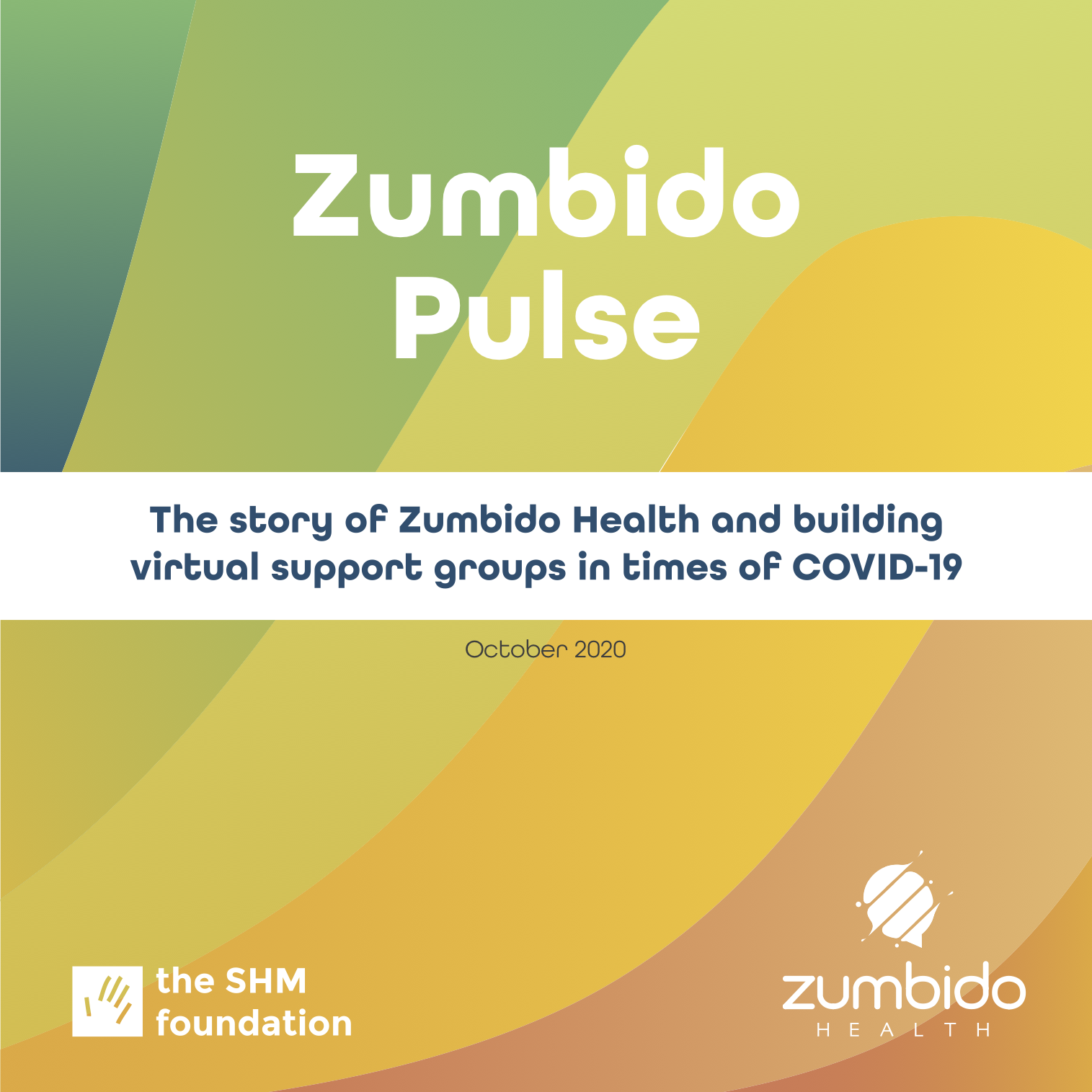
Zumbido Pulse: Building virtual support groups during Covid-19
In the first issue of Zumbido Pulse, we're introducing the story of Zumbido Health and sharing our insights on designing virtual support groups to combat social isolationContact Us

Have a challenge you think we could help with? A project you'd like us to collaborate on?
Just want to say hi? Reach out - we love meeting new people